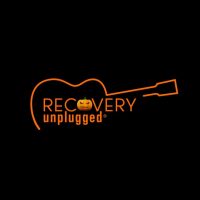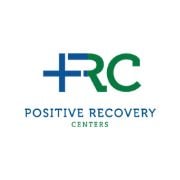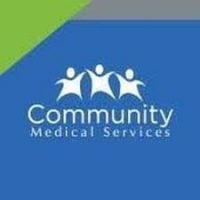About This Texas Facility
Addiction & Psychotherapy Services in Austin, TX has provided comprehensive opioid addiction treatment since 1982. As a private, family-owned clinic, their focus is on treating opiate-addiction and patients with multiple diagnoses.
They offer medication-assisted treatment with methadone and buprenorphine, as well as ear acupuncture and a range of psychiatric, psychological, and rehabilitative services. Their approach integrates psychiatric care into addiction treatment.
Accredited by JCAHO, SAMHSA, and state-licensed, this facility provides evidence-based therapies like cognitive-behavioral therapy, individual and group counseling, and holistic interventions. Treatment levels include detox, intensive outpatient, outpatient, and aftercare support.
- Locally owned and operated since 1982
- Specializes in treating complicated, dual-diagnosis patients
- Integrates psychiatric care into addiction treatment
- Provides medication-assisted treatment with methadone and buprenorphine
Addiction & Psychotherapy Services focuses on treating opioid addiction, alcoholism, substance abuse disorders, and dual diagnoses. Their qualified staff has years of experience helping people overcome opioid addictions.
For someone struggling with an opioid addiction and co-occurring mental health issues, this facility could provide comprehensive, integrated care. Their medication-assisted treatment, counseling, and psychiatric services would address both the addiction and any underlying psychological factors.
Genders
Ages
Modality
Additional
Accreditations
State License
SAMHSA

JCAHO
Conditions and Issues Treated
Recovering from any type of substance abuse is a long process, but it is one of the most worthwhile and life changing events any addicted person will ever go through. This is a combination of detoxing the body, rehabilitation, and recovery. There is also therapy, aftercare, and support during the entire process.
While substance abuse can take over a person’s life, it is something that can also be overcame by professionals at Addiction & Psychotherapy Services in Austin, TX
With so many people struggling with opioid addiction, opioid addiction treatment is more critical than ever before. Patients often take opioids when they face a painful injury. When someone begins taking opioids such as Vicodin or oxycodone differently than how the medications were prescribed, this points to opioid addiction.
Stopping these types of medications abruptly is not safe. That is where opioid addiction treatment at Addiction & Psychotherapy Services in Austin, TX comes in. Most opioid addiction treatment facilities start with detox and move to rehabilitation services while providing medical support during the process.
Getting over an opioid addiction takes time and determination, but with the right support and resources, those struggling with opioid addiction can recover and move forward with their lives.
An underlying cause often brings about addiction. Mental disorders can lie at the center, such as schizophrenia, bipolar disorder or anxiety disorder. As well as the cause of the addiction, a dual diagnosis by Addiction & Psychotherapy Services helps to treat the addiction. This ensures that after treatment is complete, the patient will not fall back on old practices.
Levels of Care Offered at Addiction & Psychotherapy Services
This center offers a variety of custom treatment tailored to individual recovery. Currently available are Aftercare Support, Detox, Drug Rehab, Dual-Diagnosis, Intensive Outpatient, Outpatient, with additional therapies available as listed below.
Detox is a drug rehab process that begins before the actual drug rehab treatment. It is used to remove any residual toxins left in your body (and brain) after using drugs, and it is used with the intent to help you or your loved one complete drug rehab.
If you are addicted to opiates like heroin, methadone, or prescription painkillers, you will detox with medication. This is because the withdrawal symptoms are often more intense and uncomfortable for an opiate addict than for someone who has abused or is dependent on other drugs, like cocaine.
An intensive outpatient program is a good option for someone in Texas with a milder or less severe addiction. An IOP may involve daily meetings at a treatment facility, along with personal counseling and peer meetings. Some IOP programs offer half-day treatment, while others offer full-day programs. Addiction & Psychotherapy Services‘s IOP is customized per individual.
Outpatient treatment is treatment that occurs when a patient is not checked into a rehab facility. The patient may show up for therapy sessions, go through detox and engage in other therapies to help them recover. However, they will do so while they live at home in Texas.
Outpatient therapy provided by Addiction & Psychotherapy Services is usually recommended as a follow up to inpatient therapy. It helps patients adapt to their normal lives after treatment. In some cases, it can also be an alternative to inpatient treatment. People may choose this route if they are unable to leave their jobs, children or if they don’t have the money for inpatient treatment. However, inpatient treatment is the best way to recover from addiction.
Therapies & Programs
Individual professional counseling or individual therapy refers to the one-on-one interaction between a patient and his or her counselor. Individual therapy allows for more privacy, one that group interactions can’t provide. Therefore, it becomes easier for a person to unload and become more open to his or her counselor.
Another benefit of individual therapy at Addiction & Psychotherapy Services in Austin, TX is that all sessions aim to speed up a single person’s progress. It makes it easier for the counselor and the patient to deal with the central issues, which are likely the culprits of substance addiction.
Once the roots of the problems are addressed, it becomes less challenging for a recovering patient to maintain sobriety and brush off temptations.
Families are not always as supportive as they could be, but by opting for family therapy, many recovering addicts are able to understand their addiction and get the support they need to get sober. These therapy sessions at Addiction & Psychotherapy Services in Austin, TX involve all members of the family who play a role in the recovering person’s daily life. They work together to overcome past issues, avoid triggers, and remain strong and supportive of each other.
In group therapy, the patient undergoes sessions with other patients dealing with similar problems under the guidance of a trained counselor. The members of the group interact with each other and talk freely about their issues. The recovery of members of the group from the problems that they face gives the patients confidence that they can also overcome their addiction.
Group therapy at Addiction & Psychotherapy Services reduces the feeling of loneliness and improves the coping skills of the patients. Group therapy provides patients with continuous feedback from other members. The group dynamics ensure that members start having some structure and routine in their lives.
Dialectical behavior therapy (DBT) is a method of individual and/or group counseling that focuses on acceptance and change. DBT can be very effective in developing coping strategies for negative emotions.
Cognitive behavioral therapy (CBT) is a way of addressing concerns through talking. Talking through issues can identify sources of discomfort or unhealthy thoughts. CBT is a healthy way Addiction & Psychotherapy Services addresses some behaviors which may be bringing unintended consequences in a persons life.
Eye Movement Desensitization and Reprocessing (EMDR) therapy is different from the traditional treatment that helps patients recover from substance abuse. Research shows that the root cause of substance abuse in many patients is the negative feelings and emotions that are associated with some past trauma. In EMDR therapy, therapists make the patients recollect such traumatic events while stimulating their vision.
The rapid eye movements reduce the patients’ negative feelings related to the trauma and promote calmness and relaxation. EMDR therapy is combined with behavioral therapies to address the root cause of the problem, which reduces the chances of relapse at a later stage.
Payment Options Accepted
For specific insurance or payment methods please contact us.
Is your insurance accepted?
Ask an expert, call (888) 674-0062
Additional Details
Specifics, location, and helpful extra information.
Austin, Texas 78704 Phone Number(512) 444-5092 Meta DetailsUpdated April 15, 2024
Staff Verified
What else do people call Addiction & Psychotherapy Services?
People have occasionally also searched for “Addiction and Psychotherapy Services in Texas”
Patient Reviews
There are no reviews yet. Be the first one to write one.
Austin, Texas Addiction Information
Texas is one of the primary hubs for drug smuggling into the country. The border between Texas and Mexico is more than 1,000 miles long. More than 10 million residents use alcohol every year and more than 25% of those are minors. Alcohol and drug use has become so common in Texas that almost 15% of all deaths can be attributed to these substances.
Austin, Texas, has a drug addiction problem that is sadly serious. According to recent statistics, half of the state's overdose deaths occurred in the city of Austin. This means that, on average, there are about 2.5 drug overdose deaths in Austin each day. There are also many sober support groups in Austin to help you stay on track and focus on your recovery goals.
Treatment in Nearby Cities
- Baytown, TX (170.1 mi.)
- Decatur, TX (207.8 mi.)
- Spring Branch, TX (47.6 mi.)
- Canyon Lake, TX (39.1 mi.)
- Morgan, TX (123.8 mi.)
Centers near Addiction & Psychotherapy Services
The facility name, logo and brand are the property and registered trademarks of Addiction & Psychotherapy Services, and are being used for identification and informational purposes only. Use of these names, logos and brands shall not imply endorsement. RehabNow.org is not affiliated with or sponsored by Addiction & Psychotherapy Services.












